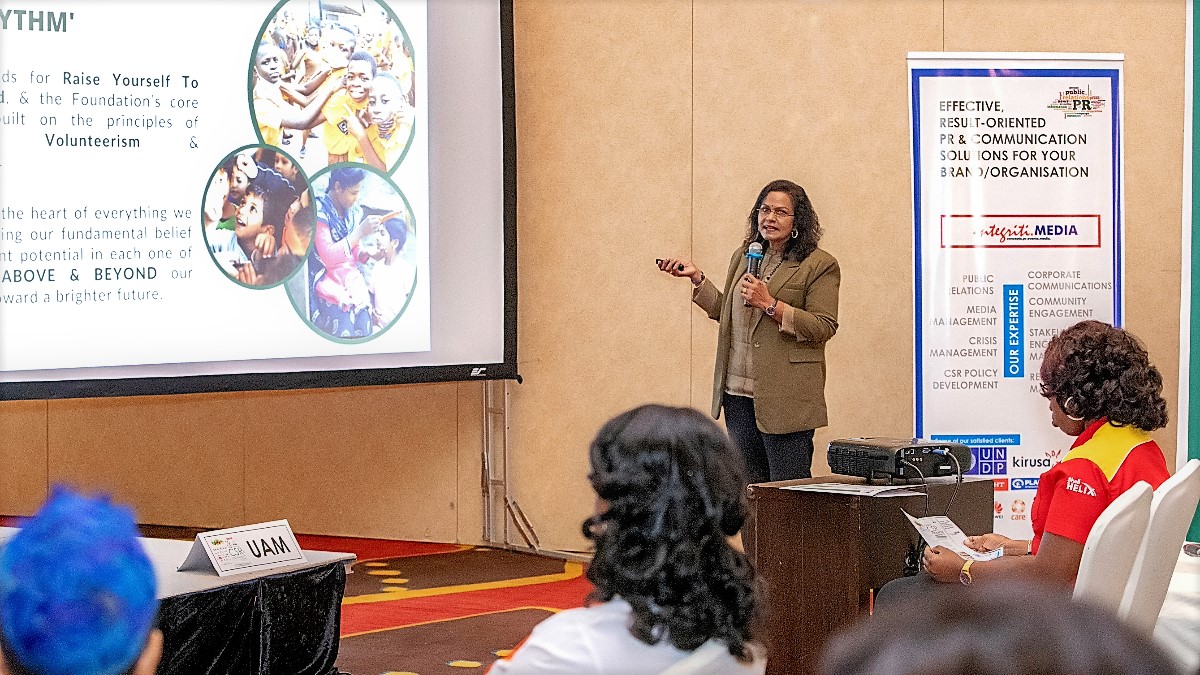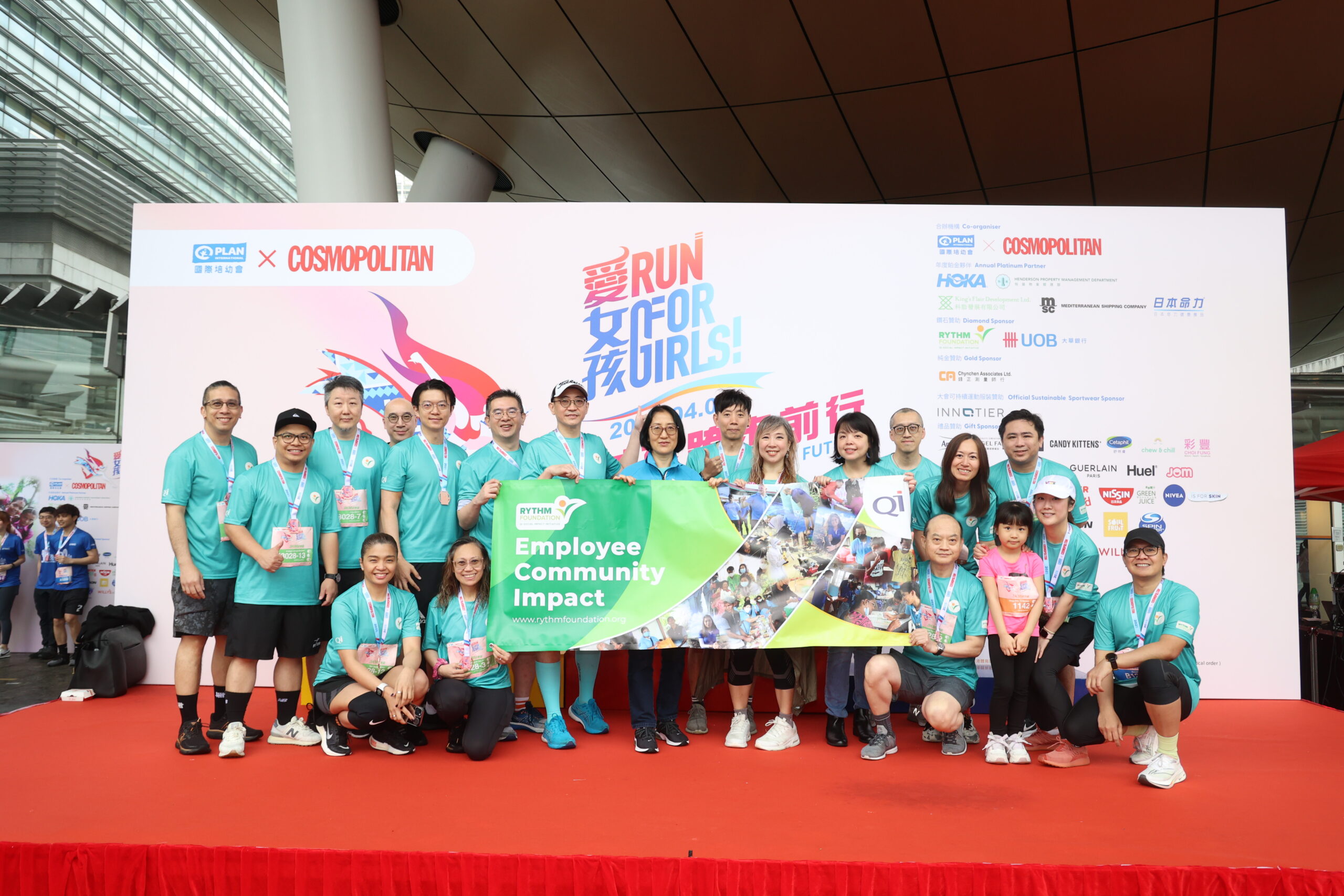Over the past decade, RYTHM Foundation has achieved remarkable global milestones in pursuing positive social impact.
As the social impact arm of the QI Group of Companies, we have emerged as a potent catalyst for sustainable community development, directly influencing the lives of more than 80,000 people across 30 countries through RYTHM-funded community initiatives.
In addition, RYTHM has forged partnerships with more than 135 organisations since 2009, jointly executing over 75 transformative projects. These flagship initiatives and community endeavours have left an indelible mark, benefiting approximately 17,000 youth and children and empowering more than 63,000 women and girls.
In July, these remarkable statistics came to light during the 10th National CSR and Sustainability Conference in Accra, Ghana, themed ‘Shaping the Future of Businesses Sustainably Post-COVID-19.’
The Head of RYTHM Foundation, Santhi Periasamy, stood out as a prominent figure among distinguished participants and speakers from well-known socially responsible and sustainability-focused brands and organisations. Other notable attendees included representatives from Coca-Cola, PwC, and World Vision. The Centre for Corporate Social Responsibility of West Africa hosted the conference.
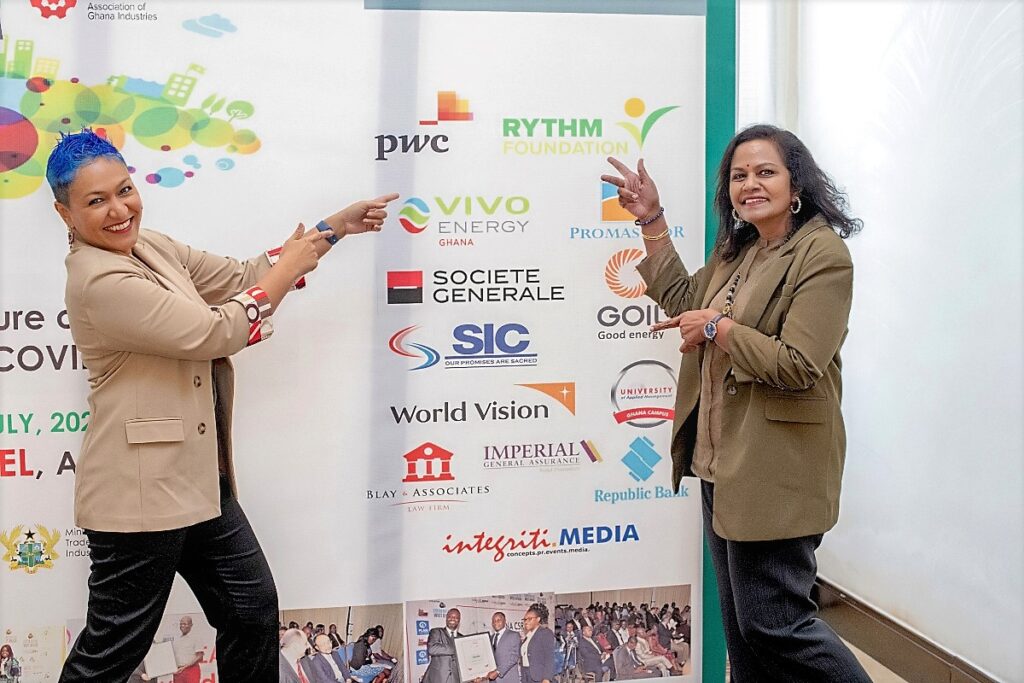
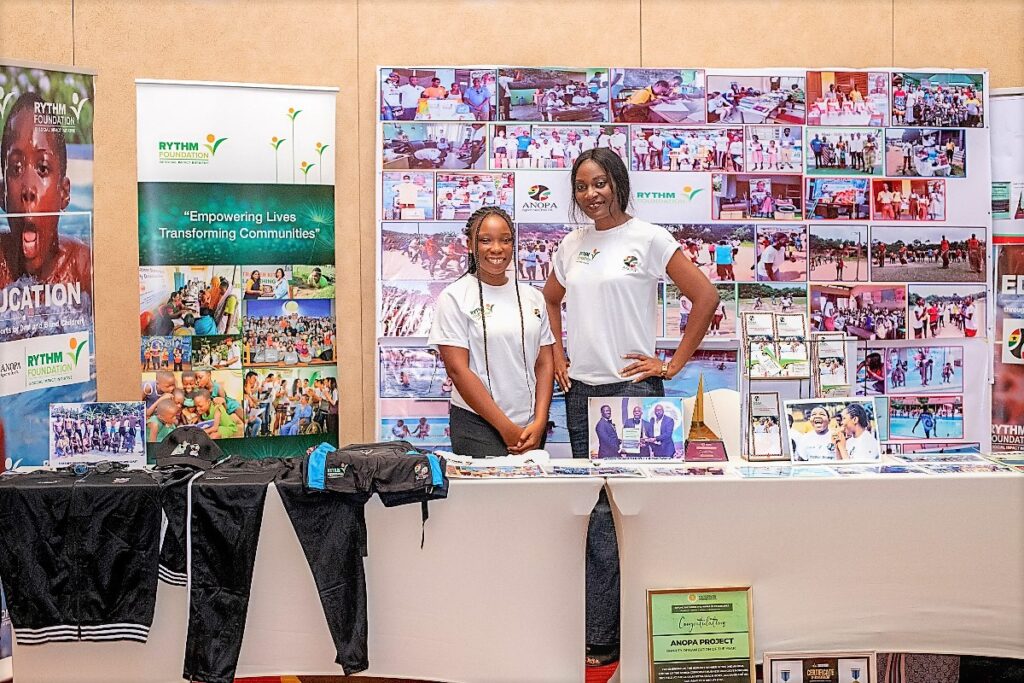
Santhi’s presentation showcased our extensive global portfolio of community development initiatives, making a lasting and profound impression on the audience. The attendees were genuinely impressed by the Foundation’s unwavering dedication to fostering positive global change.
“RYTHM has been actively engaged in various projects in East and West Africa, tackling critical issues ranging from education and environmental sustainability and social empowerment,” she said.
Initiatives in the Heart of Africa
In Ghana, RYTHM collaborates with The ANOPA Project, a Cape Coast-based NGO harnessing the power of sports such as swimming, basketball, and volleyball as transformative tools for personal growth. The programme not only improves school retention rates but also promotes inclusivity among children with visual and hearing impairments.
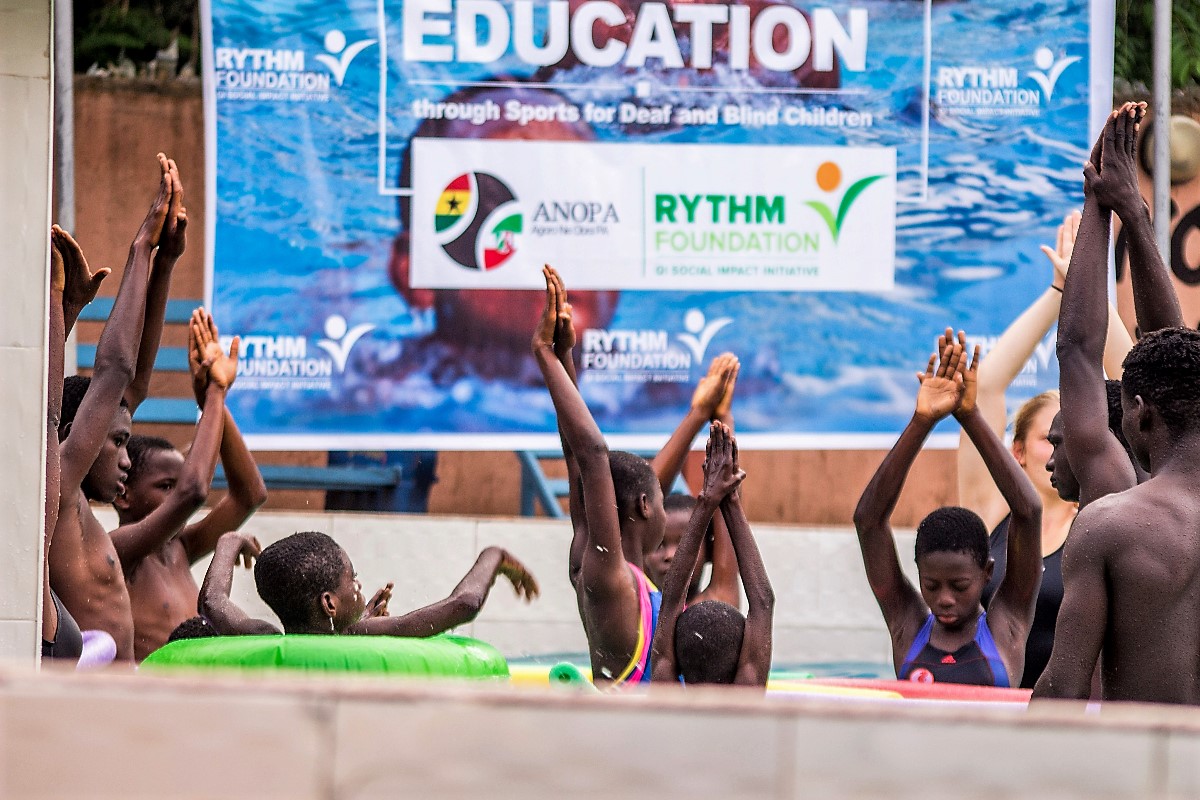
The Foundation’s assistance and funding for ANOPA’s projects has gradually changed the narrative for the ostracised and sidelined children and youth, the NGO’s executive director, Ernest Appiah, has noted.
“Educating the differently-abled is central to our work and that of RYTHM. However, we would not have been able to change the lives of many of our beneficiaries without RYTHM’s immense support.”
In rural Tanzania, RYTHM partnered with Water for Africa on a sustainable farming project. This endeavour enables communities to fund water wells and cultivate avocados and macadamia nuts, ultimately fostering self-sufficiency.
This initiative has seen the planting of 500 seedlings, the cultivation of 40 acres of fertile land, and the training of 28 villagers in sustainable agriculture practices.
“RYTHM’s involvement in Africa has been a journey of purpose and transformation,” Santhi noted. “We believe in the boundless potential of this vibrant continent and its people.
“Just as we engage in transformative projects in Africa, we extend our reach to various corners of the globe, touching lives and making a difference in diverse communities. Our focus remains resolute in advancing education, nurturing sustainable development, promoting social inclusivity, and fostering positive change.”
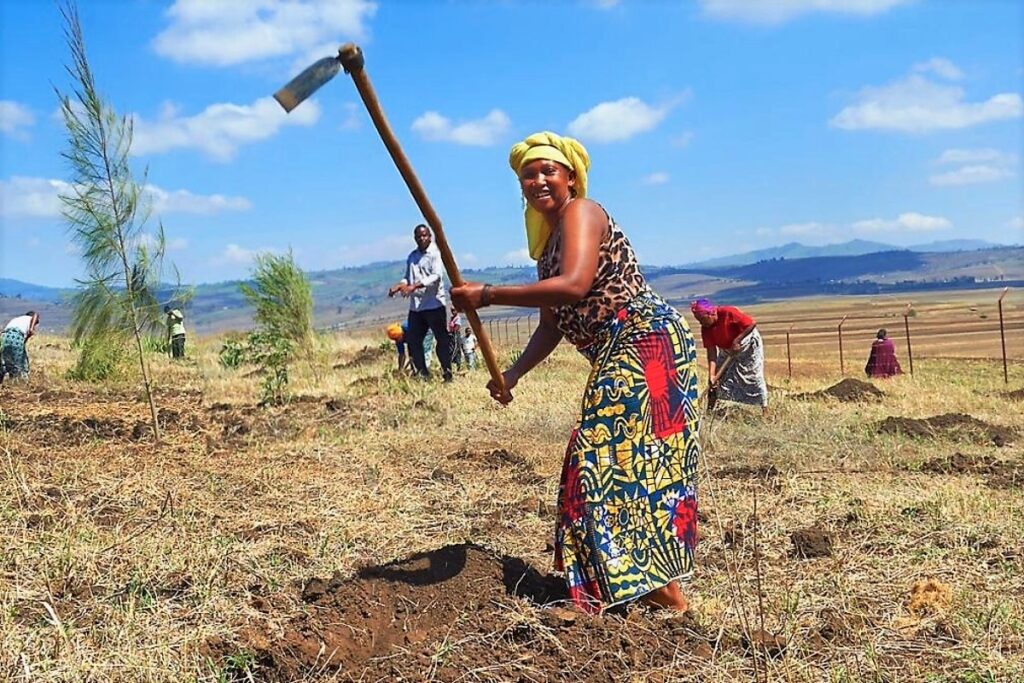
Unlocking Africa’s Potential
Africa is a continent with untapped potential and opportunities. It is a region that has made significant strides in recent years, with economic growth rates outpacing global averages, a burgeoning youth population, and an increasingly educated workforce.
However, the vast continent also faces profound challenges, including widespread poverty, inadequate access to education, healthcare, clean water, and socioeconomic disparities in many parts of the continent.
“Why should corporate foundations like RYTHM look toward Africa as a critical destination for their philanthropic efforts, particularly in education and economic assistance?” Santhi asked during her presentation.
“Education lies at the heart of Africa’s journey towards prosperity. While progress has been made in expanding access to education, significant gaps remain. Many children still lack quality schooling, especially in rural and marginalised communities. Inclusivity in education is a pressing issue, with children with disabilities often left behind. Our commitment to inclusive education in Ghana is a testament to the transformative power of educational opportunities for all,” she explained.
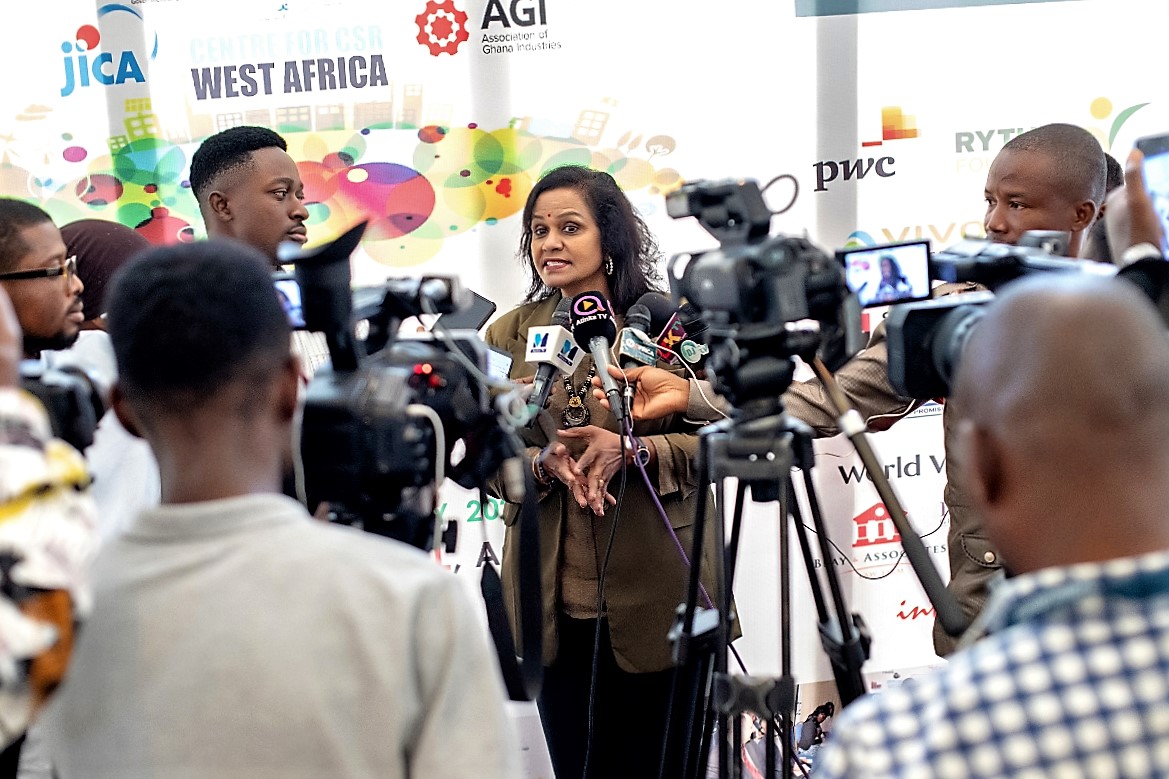
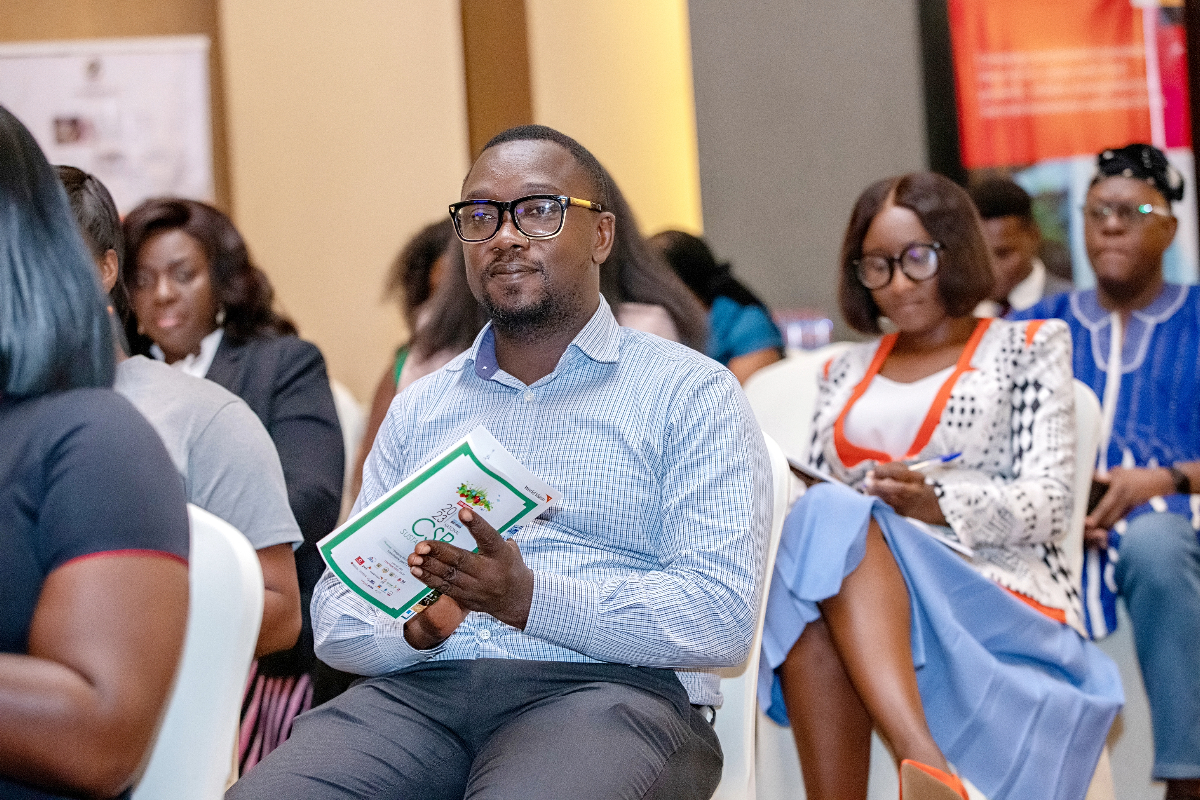
Africa is also ripe with opportunities for economic development. From agriculture to renewable energy, the continent offers diverse investment prospects. However, many communities still lack the resources and knowledge to harness these opportunities fully.
Our sustainable farming project in Tanzania exemplifies how targeted economic assistance can empower communities to become self-reliant.
Santhi further emphasised, “Through our dedicated focus on education and economic assistance, we can enhance the well-being of communities and actively influence Africa’s path toward a more vibrant and sustainable future for all.”

